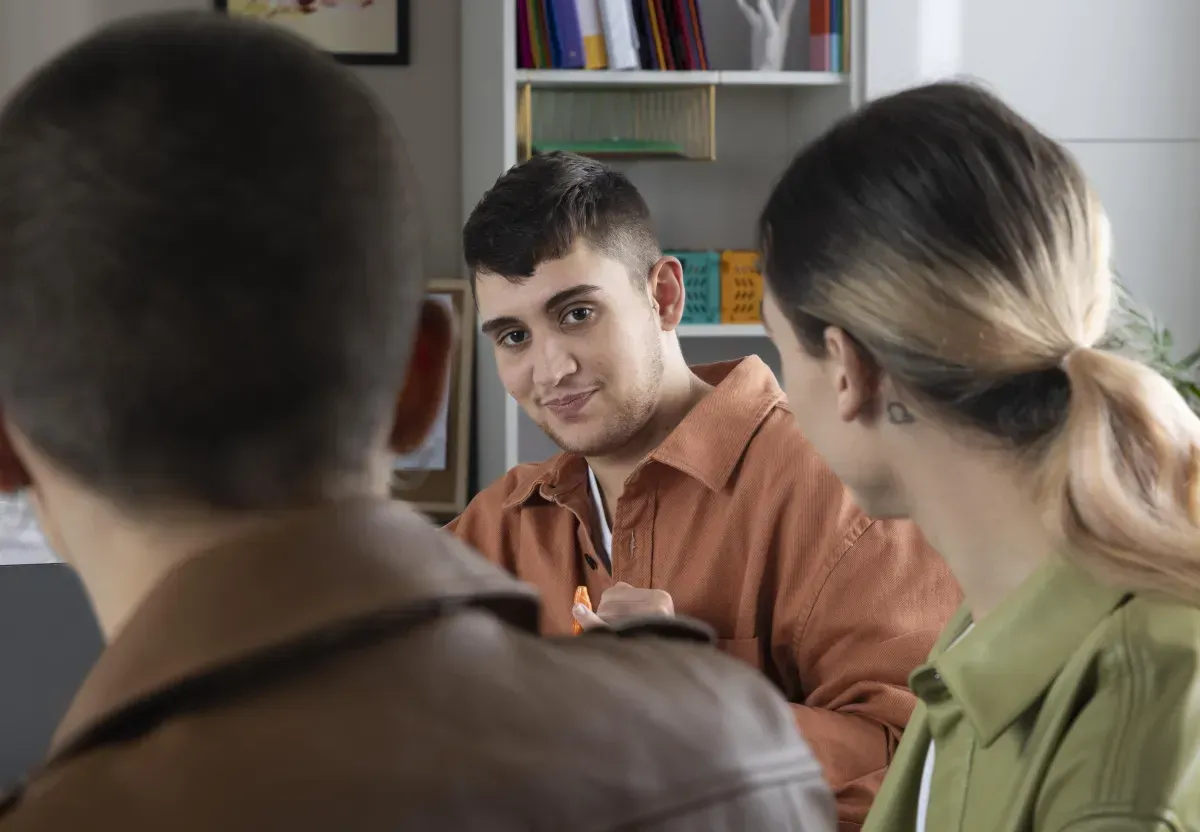Call Us Today! 720-358-9300 | Contact Us
Meet the After Divorce Support Team

Nick Meima M.S, Founder/Owner
Nick Meima M.S. has extensive personal and academic experience helping individuals work through challenging times. Nick is a graduate of the Rebuilding Seminar and is available to work with individuals, couples, and groups struggling through the end of a relationship. Nick is 17 years into his second marriage and has four adult children, including two stepchildren. Nick also designs and officiates ceremonies designed to help individuals and families heal through the challenges of relationship endings.

Tara Welles, R.N., Coach
Tara Welles, R.N. has a broad background in assisting clients with personal issues. She was divorced for 8 years before her second marriage. Tara has training in many disciplines including Nursing, Nutritional Health Counseling and Spiritual/Psychological Counseling. She has years of experience in coaching, teaching and counseling. She has two children and two stepchildren and has been involved in facilitating a chapter with Step Family Association of America.
CONTACT US TODAY!
1777 South Harrison Suite 1200
Denver, CO 80210
Phone: 720-524-3664
DIVORCE SUPPORT RECENT POSTS

Finding Your Tribe: Choosing the Right Support Group for Divorce
Going through a divorce can be one of the most challenging times in your life. Finding the right support group can make a significant difference in how you navigate this emotional journey. Support groups provide not only emotional support but also practical advice, helping you rebuild your life after a major upheaval. Here’s how you can choose the right support group to meet your needs.
Understanding the Importance of a Support Group
Divorce can leave you feeling isolated, overwhelmed, and unsure of where to turn. Joining a support group gives you the chance to connect with others who are experiencing similar challenges. These groups can offer a safe space to share your feelings, gain perspective from others, and receive the encouragement needed to move forward. The shared experience of a support group often provides comfort and can be a powerful tool in your healing process.
Assessing Your Needs
Before you choose a support group, it’s essential to assess what you need most at this point in your journey. Are you looking for emotional support, practical advice on co-parenting, or tips on rebuilding your life? Understanding your primary needs will help you narrow down the type of support group that will benefit you the most.
Types of Support Groups
There are various types of support groups available, each catering to different needs:
General Divorce Support Groups: These groups are open to anyone going through a divorce and typically focus on providing emotional support and practical advice on navigating life after divorce.
Specialized Support Groups: Some groups focus on specific aspects of divorce, such as co-parenting, dealing with a high-conflict ex-partner, or rebuilding self-esteem after a relationship ends. If you have a particular challenge, these specialized groups might be more beneficial.
Online vs. In-Person Groups: Online support groups offer flexibility and anonymity, making them a great option if you’re not comfortable sharing in person. In-person groups, on the other hand, provide a more personal connection and the chance to build deeper relationships.
Finding the Right Fit
Once you have identified your needs, it’s time to find a group that fits well with your personality and situation. Here are some tips to help you choose:
Do Your Research: Look into the groups available in your area or online. Check reviews, talk to facilitators, and if possible, attend a session to see if it’s the right fit for you.
Consider the Group Size: Some people thrive in larger groups, while others prefer the intimacy of a smaller group. Consider what environment makes you feel most comfortable.
Evaluate the Group’s Approach: Different groups have different approaches, ranging from peer-led discussions to more structured programs led by professionals. Choose a group that aligns with your preferences.
Making the Most of Your Support Group
Once you’ve joined a group, it’s important to engage actively. Share your experiences, listen to others, and be open to the advice and support offered. Remember, the goal is to heal and move forward, so try to approach the group with an open mind and a willingness to grow.
Conclusion
Finding the right support group during your divorce can be a crucial step in your healing process. By understanding your needs, researching your options, and choosing a group that feels right for you, you can find the support you need to navigate this difficult time. Whether you prefer online anonymity or in-person connection, there’s a group out there that can help you rebuild and find hope again.
For more information on divorce support groups, you can explore resources and programs offered by Rebuilders atRebuilders.net (Divorce Recovery) (Divorce Recovery).
© 2025 After Divorce Support | All Rights Reserved

